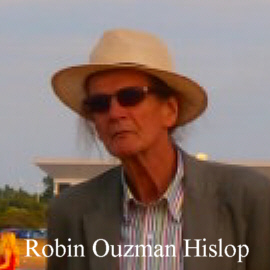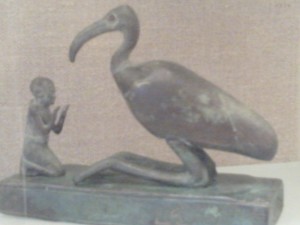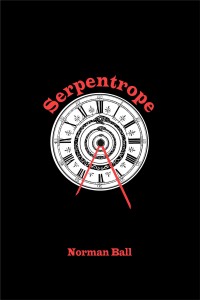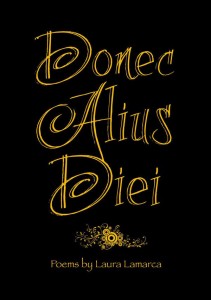All the Babble of the Souk
By Robin Ouzman Hislop
Aquillrelle, 2015
Norman Ball, writer, author of Between River and Rock: How I Resolved Television in Six Easy Payments –
Before I get to the book itself, I’d like to offer up a confession. Robin and I have, over the years, engaged in some fascinating discussions on such far-flung topics as Big Bang contrarianism, the mystery of consciousness, theories of memes, multiverses, Popper falsifiability and vitalism, just to name a few; in short, the usual water cooler chatter. Or maybe not. Robin’s a whole lot smarter than me. Nonetheless it’s a lot of fun trying to keep up. If you’ll forgive a mixed metaphor, we’re odd ducks of a feather.
For one thing, Hislop is not averse to the occasional Latinate or ism getting tossed into a stanza. Of course poetical exploration of High Concept puts one at odds with the prevailing penchant for concrete image and tactile adhesives. There are many in poetry today who insist that, if you can’t say something nice about a spatula, a garden hose or a lamppost, you have no business trafficking in periphrasis. Everything must be grounded in the real, they say—as if such a thing as the real really existed. If I may say, oh prevailing sentiment in poetry, get real.
So, perhaps All the Babble of the Souk is not for everyone. But then, what of any value ever is? Poetry marches under a Big Spatula and we all can’t be flipping fried eggs and hash. Besides, in the hands of a deftly abstract mind, abstraction is not exactly a kick in the head. Nor will it break the yokes and spoil your breakfast. What is a speculative poetic excursion, after all, but high imagination and eccentricity commiserating via language? Let the arbiters of bric a brac catalog the quotidian like good flea marketeers. Such people are born to rummage about in the attic and log their heirlooms on eBay. Hislop doesn’t trammel their kiosks. He has Big Thoughts to mull.
Fresh off a personally intense eye-mind exploration , I found myself greatly predisposed to ‘Maps’, a four-piece series of poetic aphorisms that offers some dazzling insights into how we demarcate our space, time and existence, and especially how these elements are conveyed, if not even defined, by our senses:
-
Time links the auditory, the visual cortices on the retina which maps a fission between the unseen form of sound, the unheard sound of seeing
This notion of time having a real job to do immediately put me in mind of John Archibald Wheeler: “Time is what prevents everything from happening at once.” Hislop may be onto something even more subtle: Does time keep chaos at bay, allowing time for our disparate senses to marry their qualia into a coherent universe? Perhaps those with Synesthesia are more evolved creators of worlds, their gaps between sound and vision less discontinuous.
‘Maps’ delivered me to a speculation I wouldn’t have reached otherwise. And I find that’s a critical function of Hislop’s poetry. It gathers, then points away. More important than the resolved landing place is how it offers a hospitable ‘symposium’, couching philosophical fields of inquiry within poetic metaphor from which the reader’s own speculative arcs can then rise and take tangential flight; speculations feeding speculations. What does resolution ever resolve anyway? Conclusions are overrated. The concrete of the concretists doesn’t exist in a world:
-
Imposed as
an impression
seeking an ineffable concrete
in an abstraction
which defies location.—from ‘Red Butterflies’
Tumbling down rabbit holes beats rabbit stew any old day, especially when the universe may have us fixed for the next tasty, sentient bunny-in-line. In this sense I would call Hislop’s poetry inviting, intelligent, and refreshingly non-binding.
In ‘From Here to Silence, three’, he sets up a free will versus determinism tug-of-war stalked by Nietzschean recurrence and Leonard Susskind’s holographic 2D picture-show. You got a problem with that, Rod McKuen?
-
Say we are not sui generis
(the cause of yourself)
we are homeostatic holographs
dimensions in spectral parallel membranes
our near eternal process to err
along such a line we pass time in, time out
but could we not cheat the butterfly effect?
The stanza ends on the plaintive hope, reminiscent of Kafka that our cycle of error could end if freewill achieved grace but for an instant. Let us hope that moment arrives as I’m so tired of breaking my shoelace the day before Thanksgiving forever.
Am I losing the yucksters in all the heavy universe lifting? Not so fast. Hislop can be funny too. ‘At a Slant’ has a droll quality that still draws a snicker if for no other reason than that we’re stuck, all together (‘but it’s the same for all of us!’):
-
The con of life
the weirdness of its melodramatic sham
how good we are at yesterday, tomorrow
always better than before
like, being had – in the process by it.
The juxtaposed tenses of being had cement the interminable predicament we share. No exit. But at least we perfect our yesterdays until such time as we resume them anew, becoming rank amateurs all over again. But amateurs with a difference, with a modicum of acquired wisdom and an almost imperceptibly elevated rank. Okay, so it’s bleak, black humor. But there are shafts of light. One day, though maybe yet a half-eternity away, some butterfly will escape the dark matter of our descending shoe. (Butterflies pervade Hislop’s poetry.) We’ll be released to the next pristine universe armed with a butterfly-brain’s worth of hard-earned prescience. So yes, each successive Big Bang is not an unadulterated singularity. Some kernel of hard-earned wisdom gets borne through. Each new universe is a tooth on a slowly revolving gear that turns towards…perfection? In short, something barely better.
Since Hislop asks, that’s what—I think, I hope—may be ‘next’:
-
Pack, the near infinite
(in—the moment before you munch)
take a bit of the biscuit
before the Big Crunch
it’s an eternal packet
& having all, what’s next?—from ‘Lucky Hat Day’
All the Babble of the Souk will have you pondering your predicament in a whole new imaginative light. Reflect well my friend, as mindless impulsivity, and materialist inanity, is precisely what dangles this eternity over the interminable abyss. Therein may lie our paper-thin chance for freedom: by insect increment, one pardoned butterfly per eon at a time.
—Norman Ball
Editor’s note: for more of this Poet/Writer’s scintillating script please do not fail to overlook the hyper-text link eye-mind exploration included in the above review.

NORMAN BALL (BA Political Science/Econ, Washington & Lee University; MBA, George Washington University) is a well-travelled Scots-American businessman, author and poet whose essays have appeared in Counterpunch, The Western Muslim and elsewhere. His new book “Between River and Rock: How I Resolved Television in Six Easy Payments” is available here. Two essay collections, “How Can We Make Your Power More Comfortable?” and “The Frantic Force” are spoken of here and here. His recent collection of poetry “Serpentrope” is published from White Violet Press. He can be reached at returntoone@hotmail.com.
www.facebook.com/PoetryLifeTimes
www.facebook.com/Artvilla.com
robin@artvilla.com
editor@artvilla.com
http://www.aquillrelle.com/authorrobin.htm
http://www.amazon.com. All the Babble of the Souk. Robin Ouzman Hislop
www.lulu.com. All the Babble of the Souk. Robin Ouzman Hislop
https://www.amazon.com/author/robinouzmanhislop
http://www.innerchildpress.com/robin-ouzman-hislop.All the Babble of the Souk







